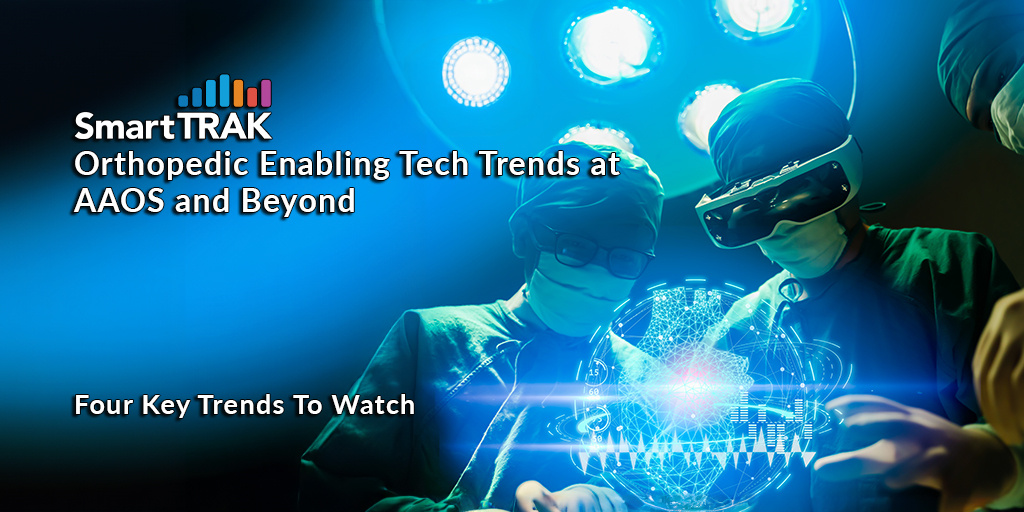 INS President Dr. Marc Russo and INS President-Elect Dr. Konstantin Slavin discuss the current “state of the union” in neuromodulation, how the field is evolving and the challenges and opportunities that lie ahead in an interview with SmartTRAK at INS 2024.
INS President Dr. Marc Russo and INS President-Elect Dr. Konstantin Slavin discuss the current “state of the union” in neuromodulation, how the field is evolving and the challenges and opportunities that lie ahead in an interview with SmartTRAK at INS 2024.
At the 16th International Neuromodulation Society World Congress (INS 2024) held in Vancouver, Canada, Dr. Marc Russo, INS president, and Dr. Konstantin Slavin, INS president-elect, discussed the current “state of the union” in neuromodulation, how the field is evolving, where it’s going and trends in research, technology and clinical practice in an interview with SmartTRAK. They also discussed challenges and opportunities in the field, how the INS is addressing recent criticisms about neuromodulation and the promise and potential of neuromodulation across a wide range of clinical applications.
To find out more, including the promising indications and areas of growth for spinal cord stimulation (SCS) and deep brain stimulation (DBS), click on the following video to listen to the interview recorded live at INS 2024 (51:53 min). Click here to download a complete transcript of the interview. Topics by timecode are provided below.
00:27 The current “state-of-the-union” in neuromodulation, how the field is evolving, where it’s going and trends in technology. Systematizing the delivery of care via transnational registries and using big data to reduce quality variations in clinical practice and to develop standards for best practice. Using evidence and experts to continuously update the Neurostimulation Appropriate Consensus Committee (NACC) recommendations for best practice guidelines.
05:34 Challenges and opportunities that lie ahead across all of neuromodulation. Using an evidence-based approach in neuromodulation across a wider range of modalities and applications to better demonstrate and “prove” effectiveness, safety, cost-effectiveness and quality of life improvement. Using data, different types of research and real-world evidence that are objective and unbiased to support indications.
15:57 Addressing recent criticisms, concerns and misinformation in the consumer press through data and better communication. Ways to address the placebo effect in neuromodulation research to enhance the proof of efficacy. The need for transnational definitions, consistency and reporting of medical device adverse events. Improving the quality of the data sets through comprehensive, full and complete data collection via registries and going beyond safety endpoints to holistically look at patient outcomes.
28:37 The advantages and disadvantages of industry-sponsored research, the role of peer review and the quality of data needed to gain FDA approval. The need for more independently funded research, investigator-initiated studies and INS’ role in encouraging independent research. The importance of objective evaluation and peer review. Challenges with independent investigators if they do not have expertise in the field, if they try to prove a point rather than be open to all outcomes and if they send papers to more general journals for publishing where reviewers may miss important aspects.
34:01 Using transparency and peer review to address conflict of interest concerns. INS’ policy and recommendations for addressing conflicts of interest. The many layers of conflict (financial, academic, author, reviewers, inventors).
37:27 The importance of hearing actual patient stories and how neuromodulation helps patients in their everyday lives. Having the patient’s interest in mind drives research, clinical practice, and innovation. The promise and potential of neuromodulation (expansion, less invasive, more mechanism-based approaches, individualized approaches for patients).
41:11 Research and technologies at INS 2024. Highlights of key research. Five-year data on neurorestorative therapy on low back pain. Updates on novel waveforms and remote monitoring. The wide range of brain neuromodulation research to treat complex psychiatric or cognitive disturbances, OCD, depression, Alzheimer’s, dementia and epilepsy. And an update non-invasive neuromodulation and peripheral nerve stimulation. The most promising indications and areas of growth for SCS and DBS.
Click the button below to download the complete transcript of SmartTRAK's interview with INS President Dr. Marc Russo and INS President-Elect Dr. Konstantin Slavin, conducted by Anne Staylor, SmartTRAK Executive Editor, VP & GM of Neuro Therapies.
SmartTRAK is the Medtech industry’s only global Insights-as-a-Service solution for the Orthopedics, Wound Care, Regenerative Medicine and Neuro Therapy markets. SmartTRAK’s propriety methodology turns disparate data from hundreds of sources into powerful insights customers can rely on as the trusted source for strategic decision-making. The SmartTRAK enterprise platform includes rich daily updates, comprehensive market coverage and simple-to-use tools and dashboards for market, product and financial analysis. Customers leveraging the SmartTRAK platform also have direct access to market experts for inquiries and advisory services. If you would like a demo of what SmartTRAK offers and how we can help increase proficiency, improve productivity and reduce costs for your company, just click here.





